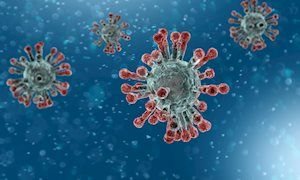13 March 2020
Sex and gender-related medicine focuses on the role of sex (biological differences) and gender (sociocultural structure) in healthcare. Both sex and gender have an impact on access to and availability of healthcare. Over the past 20 to 30 years, more attention has been given to the role of sex and gender in healthcare, so we now know that the differences lead to different symptoms and diseases, with corresponding forms of development and progression. Although knowledge and methods for good research are on the rise, proper, systematic tools for analyzing gender in medicine are still lacking. It is therefore necessary to determine which aspects of gender we need to understand in order to improve people's health.
Healthcare Accessibility
In this online publication several studies show how complex the reality is. Gender influences access to healthcare and also has an impact on the chance of survival. In fact, gender equality leads to a lower mortality rate among both women and men. In many countries, women are still at greater risk of violence, which affects their health and contraceptive options. Gender-based discrimination also leads to poorer mental health. Therefore, changes should be aimed at breaking down structural barriers, not just at changing individual behavior. We are seeing that more equality leads to better care for mothers, but also that it has a positive influence on the careers of female researchers in medical science.
Sabine Oertelt, associated with the Department of Primary Care and Community Care at Radboudumc: “As a society, we have to ask ourselves what we consider health to be. Is it just the absence of disease or is it more than that? Look at the definition from the World Health Organization WHO: ‘a state of complete physical, mental, and social well-being.’ I strive for this broad definition for everyone. That is why it is essential to include sex and gender in our work in healthcare. It is time to make it a priority.”
Published in The Lancet EClinical Medicine.

Sex and gender-related medicine focuses on the role of sex (biological differences) and gender (sociocultural structure) in healthcare. Both sex and gender have an impact on access to and availability of healthcare. Over the past 20 to 30 years, more attention has been given to the role of sex and gender in healthcare, so we now know that the differences lead to different symptoms and diseases, with corresponding forms of development and progression. Although knowledge and methods for good research are on the rise, proper, systematic tools for analyzing gender in medicine are still lacking. It is therefore necessary to determine which aspects of gender we need to understand in order to improve people's health.
Healthcare Accessibility
In this online publication several studies show how complex the reality is. Gender influences access to healthcare and also has an impact on the chance of survival. In fact, gender equality leads to a lower mortality rate among both women and men. In many countries, women are still at greater risk of violence, which affects their health and contraceptive options. Gender-based discrimination also leads to poorer mental health. Therefore, changes should be aimed at breaking down structural barriers, not just at changing individual behavior. We are seeing that more equality leads to better care for mothers, but also that it has a positive influence on the careers of female researchers in medical science.
Sabine Oertelt, associated with the Department of Primary Care and Community Care at Radboudumc: “As a society, we have to ask ourselves what we consider health to be. Is it just the absence of disease or is it more than that? Look at the definition from the World Health Organization WHO: ‘a state of complete physical, mental, and social well-being.’ I strive for this broad definition for everyone. That is why it is essential to include sex and gender in our work in healthcare. It is time to make it a priority.”
Published in The Lancet EClinical Medicine.
Related news items

Participating in cancer research among people with intellectual disabilities
30 November 2021 Thanks to the support of the Maarten van der Weijden Foundation research was carried out into the participation of people with intellectual disabilities in (population) screening for cancer. go to page
General practice examines treatment and persistent complaints COVID-19 ZonMw grant for three major projects
3 August 2021 ZonMw has granted a total of 4.3 million euros for research into the treatment of COVID-19 and the symptoms that many people continue to have afterwards (Lung COVID). The research group of the department Primary and Community Care Medicine is co-applicant of these research projects. go to page
Henk Schers appointed professor of Regional Network Formation of General Practice
14 July 2021 His research focuses on innovations in the collaboration between healthcare providers from inside and outside the hospital go to page
Grants for science communication at Radboudumc
22 April 2021 Scientists at the Radboudumc have received two KNAW grants, each worth 10,000 euros, for science communication. With the new fund, KNAW underlines importance of making science accessible. go to page

